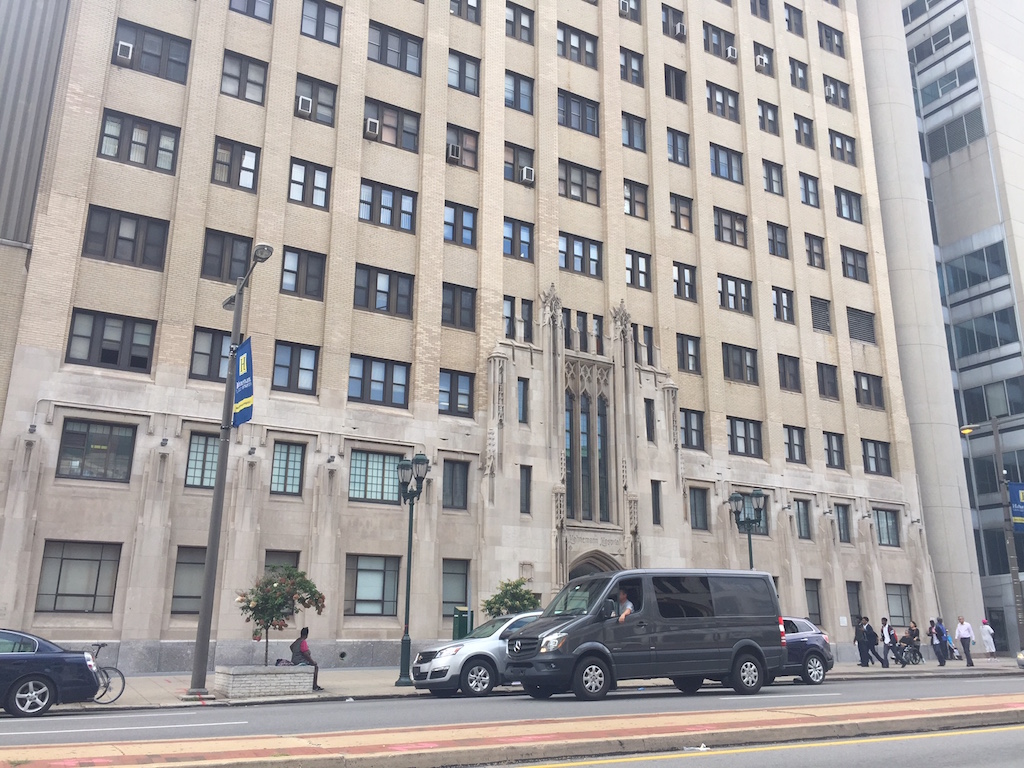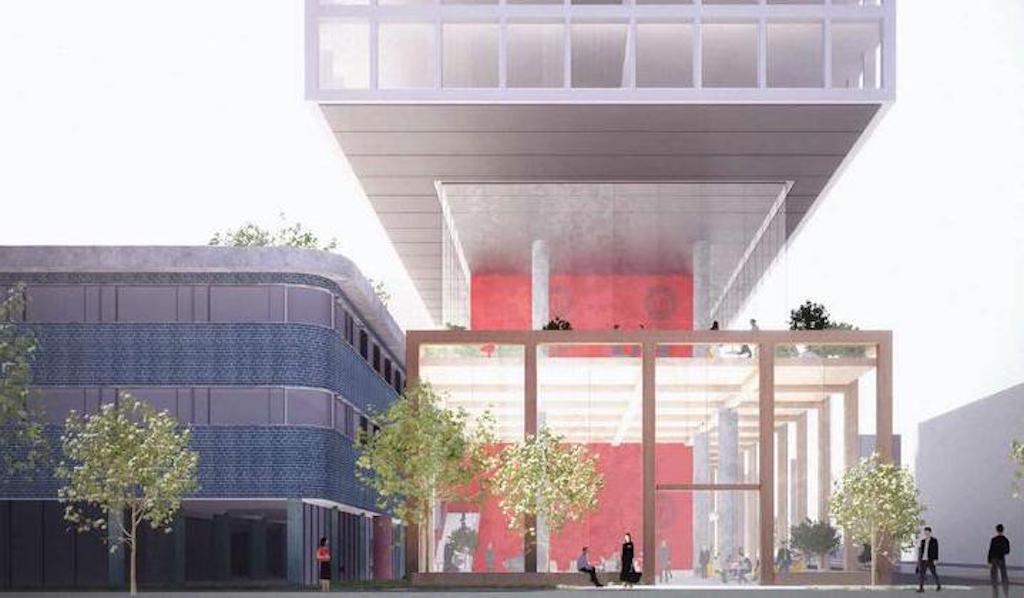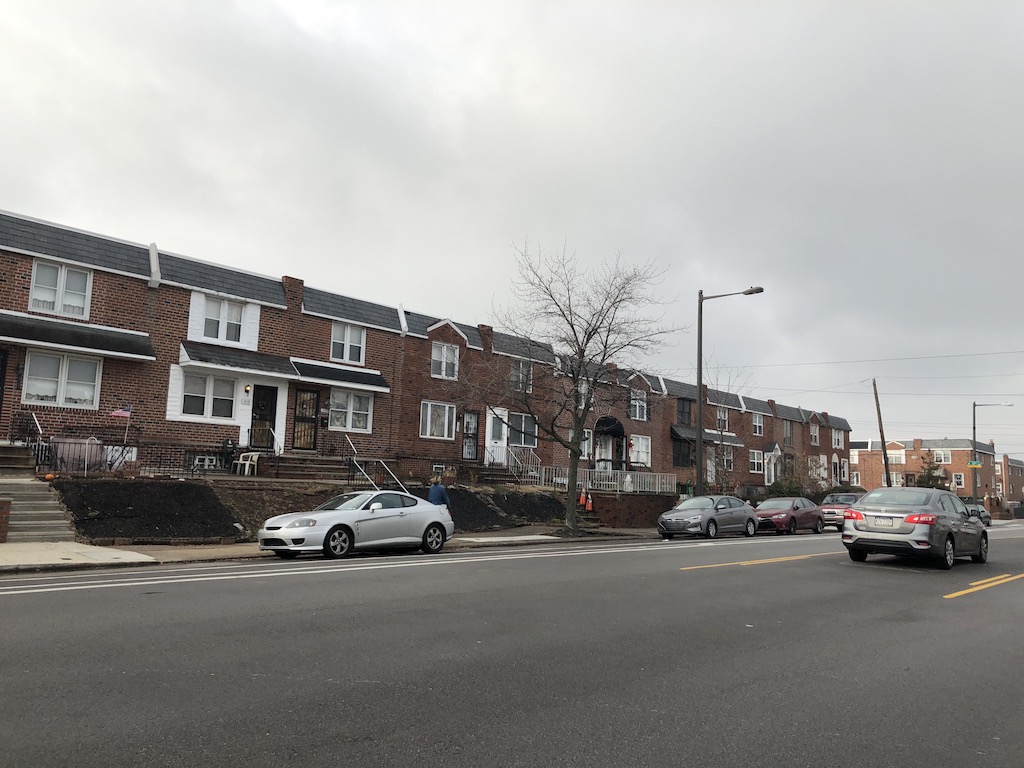Christmas is over and New Years has come and gone- it’s 2020 in Philadelphia! Let’s make some predictions for the coming year, shall we? We’ve been spending a lot of time meditating and thinking prognosticating thoughts, so hopefully we can do better than our middling performance in 2019. Here we go…

January: A new City Council is inaugurated, and it’s the most progressive legislative body in the history of Philadelphia. Even though the Mayor signed a bill to reform the 10-year tax abatement at the end of 2019, debate starts up immediately about further changes to this tax policy which some decry as unfair to long term residents and others insist to be crucial to continued economic development in the city.
February: After a stunning run through the NFC playoffs in which 90% of the team ended up on the injured list, the Eagles fall just short in the Super Bowl, falling to the Ravens as a Hail Mary pass from Nate Sudfeld slips through Terrell Owens’ fingers. Owens re-signs with the Eagles for his age-47 season, since he was easily the best wide receiver on the team after his emergency signing just before the second round of the playoffs. Also, pre-construction work will begin on the Christian to Crescent section of the Schuylkill River Trail, which will finally connect the section of the trail that goes through Center City to the Grays Ferry Crescent section, in Forgotten Bottom. Work will continue through the rest of the year, into the following year.
March: Everyone agrees that North Broad Street is the hottest corridor in town as four projects are under construction between Race Street and Girard Avenue with several more projects on the horizon. Most significantly, an effort to bring a new health care operator to the former Hahnemann Hospital falls through, and a couple hundred thousand square feet of prime real estate are listed for sale on North Broad. Not for nothing, but we called this back in 2017.

April: Another large project is proposed on the north side Washington Avenue west of Broad and it cruises at the ZBA with widespread community support, even though the corridor is still zoned exclusively for industrial uses. A project on the south side of Washington meets a very different fate, as the community groups push back over gentrification concerns. Calls to remap Washington Avenue (and Point Breeze Avenue, for that matter) continue to fall on deaf ears. Oh, and groundbreaking finally occurs at the long planned project at 43rd & Baltimore.
May: Development continues to proliferate on the fringes of greater Center City. Norris Square, Port Richmond, Strawberry Mansion, Grays Ferry, and Whitman see more building permits than ever before, with almost exclusively small to mid-size projects- but proposals start to make the rounds for some larger projects in 2021. The 76ers make it to the Eastern Conference Finals, and lose in gut-wrenching fashion as a Giannis buzzer beater bounces 7 times on the rim and floats in the air for a couple of seconds as if by magic, before falling in the hoop.
June: The Royal Theater, vacant since the 1970s, reopens as an apartment building with a relocated Rex 1516 on the first floor. At the same time, plans come into focus for the large project at the former Health Center on Broad Street, which will result in the elimination of the large surface parking lot at 15th & South. Just before summer recess, City Council passes another revision to the tax abatement, eliminating it for single family homes and reducing it to a four year term for all other construction.

July: The owners of the large vacant lot at 26th & Girard finally decide it’s time to sell, filling in a huge hole on the East Girard corridor. Meanwhile, the Fresh Prince and DJ Jazzy Jeff reunite for an epic Welcome America concert on the Ben Franklin Parkway and bring the proverbial house down with a re-written version of Parents Just Don’t Understand, but from the perspective of the parents.
August: Everyone goes down the shore, nothing else really happens.
September: Despite the work of the Historic Preservation Task Force, and several bills passed at the end of 2019, preservation remains a major issue in Philadelphia. Several legislative ideas are kicked around, with the City finally settling on a plan to create a fund that pays developers a portion of the lost value if their property is designated historic in addition to competitive tax breaks that encourage renovation and reuse over demolition. Several mini-historic districts are listed, including the 2200 block of Saint Albans, what’s left of Jewelers’ Row, and somehow, the eastern section of Packer Park.

October: Starbucks opens on Frankford Avenue after more than a year of litigation. Due to neighborhood protests, no customers ever go inside and they close after a month. The new Starbucks on Richmond Street is doing great, however. Otherwise, conversation is dominated by he election and the Phillies shocking run to the playoffs. We won’t predict the outcome of the election, but we will confidently state that the Phillies ain’t gonna win the World Series. Call it a win in the wildcard round and a tough loss to the Dodgers in the NLDS.
November: Two people take our suggestion and form Registered Community Organizations with incredibly wide borders, spanning most of downtown Philadelphia. One “group” is dedicated to NIMBY efforts while the other is a YIMBY organization. These two RCOs duke it out over projects large and small, extending ZBA hearings to ridiculous lengths but ultimately canceling each other out every time. Zoning attorneys are thrilled by this development, needless to say. Also, the owners of the Family Court Building on the Parkway promise that construction will finally, probably, get started in 2021. Almost definitely.
December: The year ends and several long stalled projects remain long stalled. Notably, 8th & Market is still a parking lot, Broad & Washington is still a vacant lot that was best used to temporarily store a giant piñata, and the land behind the Sheet Metal Workers Union building on Delaware Ave. is still a mix of a parking lot and vacant land. Finally, in the last session of City Council for the year, the tax abatement changes once again, as it is eliminated for all new construction and created for any building over a hundred years old.
